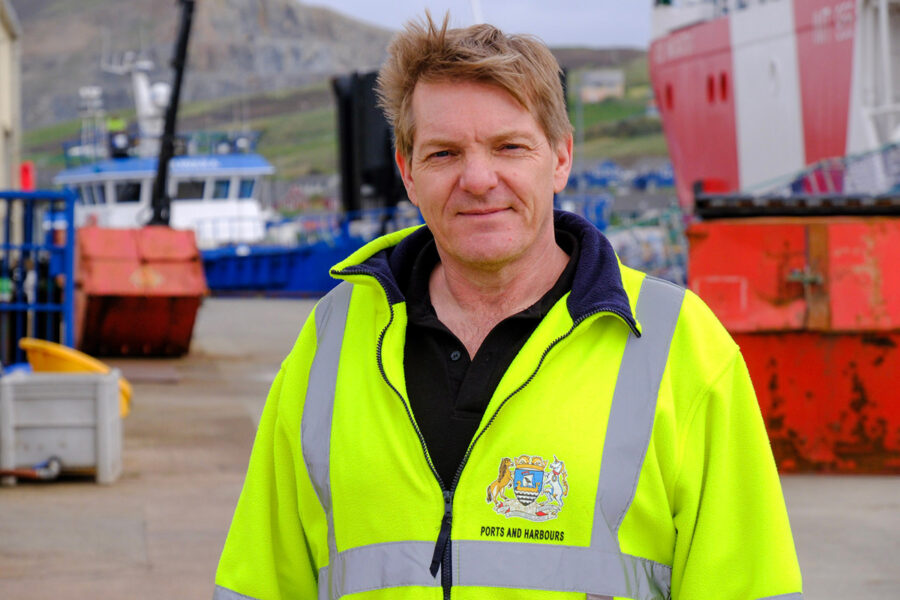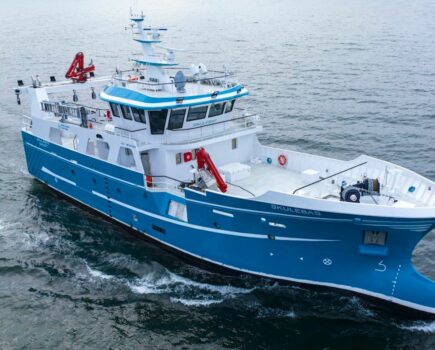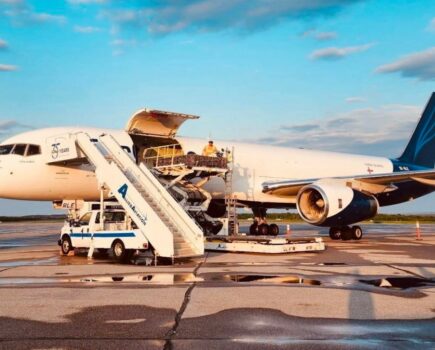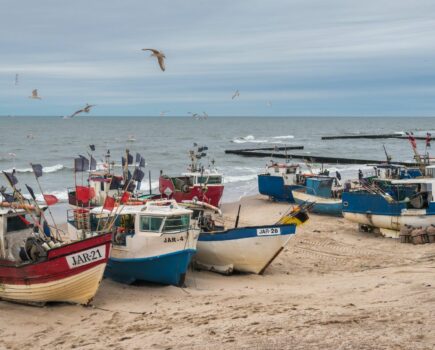Share a day in the life of Shetland’s small ports supervisor
“I’ve always been at sea, all my life. I don’t remember ever not being on a boat. I’ve always had wet feet,” Ross Maclennan, small ports supervisor at Shetland Islands Council, told Fishing News.
With the exception of Sullom Voe, Scalloway-based Ross is responsible for the day-to-day running of the 15 council-owned ports. “Scalloway is the main focus, as the largest of the small ports. We call Scalloway a small port, but it’s a 1m-tonne-a-year port. It’s the big brother to the other ports.”
It’s a job that brings Ross and his small team an enormous amount of variety, with a host of industries, including fishing, aquaculture, oil and the cruise market, all using the council’s facilities across Shetland.
“We’re very lucky to have such a broad spectrum of industries working within our ports. That obviously brings its own challenges. Of course, fishing is the backbone which everything has been built on – literally. It’s been here the longest, and I’m sure it will be here the last.
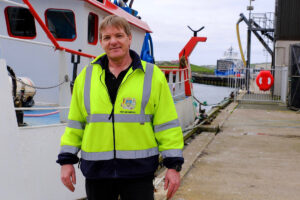
Ross on the quayside at Scalloway. “Health and safety at ports is a massive challenge. We have a huge user base, including many, many different companies and individuals. We’re quite lucky as we have the Shetland Fishermen’s Association and the Shetland Shellfish Management Organisation, so we can easily disseminate information to fishermen about new rules or requirements.”
“We manage to operate 15 harbours with five full-time staff. Four of us are based in Scalloway and only three of those are on shift, covering 24/7, 365 days a year. A lot of this wouldn’t be possible without the dedication of the staff. There’s no question about that. People perhaps don’t realise how much of their lives they put on hold to make this work.”
Ross, originally from Ullapool, joined Shetland Islands Council in 1997.
“After leaving school I worked with the klondykers – Eastern European factory ships – during their season, which tended to be over the winter. That eventually morphed into a full-time role. That went on for about 11 years.
“We eventually moved to Shetland chasing the klondykers, because the fishing patterns had changed a little bit. I used to follow the fleet around. We ran the service boats, which would supply essentials such as potatoes, onions, cabbages, gas, engineering supplies – everything they needed, really.
“It was a fantastic role, and I loved every second of it, but the industry collapsed in the early 1990s when the USSR as an entity disappeared. We did work for a few years under the new Russia, but eventually the klondykers went.”
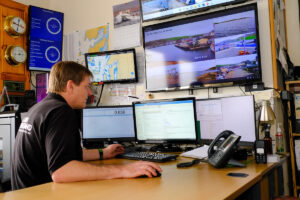
Ross in his office monitoring the weather, AIS, tides, the port… and his emails. “From the outside it’s very hard for most people to have a handle on what it takes to make everything work – particularly with the fishmarket, with the amount of paperwork involved, and the time it takes to operate and maintain it with only four people. It also has to be washed and cleaned during market days, and chemically cleaned once a week, from head to toe.”
However, Ross remained in Shetland. “I started working with a company called West Side Fishermen. They used to hire me to the harbour as a skipper of the pilot boat when needed.
“Eventually, the harbour decided they wanted to employ another full-time person. I applied for that job, and I got it.”
Ross has witnessed much change over a career spanning more than two and a half decades, including the resurgence and modernisation of the islands’ fishmarkets. Much of that success has been down to a collaborative approach to operating the markets in the best interests of the islands’ fishing industry as a whole.
“Operating the markets is something done by ourselves and Lerwick harbour – which is its own entity and nothing to do with the council. We work hand in hand to the benefit of the industry.
“We manage the buildings. Other parties then manage their particular set of skills, whether that’s buying and selling, or transporting the fish. Each individual company specialises in their own area.
“Even the fishermen themselves and those very close to the action won’t necessarily understand how much goes into making it work.”
Ross’ day normally begins with a cup of tea and a catch-up on emails. “I’m a nine-to-five person now, Monday to Friday.
“Between Friday afternoon and this morning [Monday], there were 40 emails. It’s just the way it goes. There’s always paperwork.”
The morning’s office work can also include administration critical to the smooth running of fish sales. “All the fish in Shetland gets sent down to three hubs in central Scotland, where it gets aggregated. Every single hub has to have a declaration.
“Every six months we have to be reassessed by Environmental Health, and this is the six- month point. If I don’t have this paperwork in place, nobody can sell fish to the Continent.”
Ross’ day can develop in a number of ways thereafter, including visiting ports to check safety equipment and general upkeep, and to keep a look-out for any risk of pollution.
The meticulous approach to ensuring the efficient and safe operation of the harbours extends to the fishmarkets and the services provided to fishermen – the number of whom, encouragingly, continues to increase in Shetland.
“In Scalloway, the guys can come in, they can pull their nets out into a nice big net-mending area, wait for engineers to come if needed, and go and get ice, or boxes, all within yards of each other. We’re a one-stop-shop for fishing,” said Ross.
“We’re here to make it work – and I think the fishermen appreciate that.”
This story was taken from the latest issue of Fishing News. For more up-to-date and in-depth reports on the UK and Irish commercial fishing sector, subscribe to Fishing News here or buy the latest single issue for just £3.30 here.
Sign up to Fishing News’ FREE e-newsletter here.

